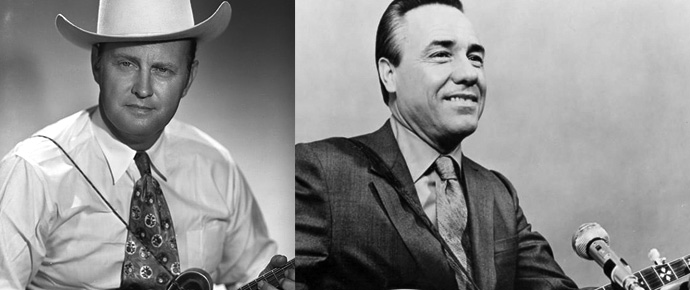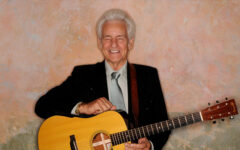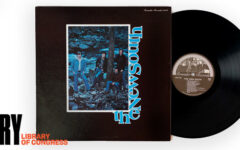
This Saturday, the Grand Ole Opry celebrates the 75th birthday of bluegrass music. It’s certainly a cause for celebration. But, for me at least, it’s also a time for reflection and the sharing of a belief that I’ve held for a long time, but haven’t disclosed until now.
I’m convinced Earl Scruggs is the real Father of Bluegrass. I don’t ask you to agree, but I do hope you’ll hear me out.
This is not to say that Bill Monroe doesn’t have a rightful place among the founders of the genre. He does, right along with Lester Flatt, Ralph and Carter Stanley, and others. And, of course, Scruggs.
I’m not the first to study this question, and make a suggestion that some will find heretical. But I’m convinced enough, some might say stupid enough, to go public with my case.
So here it is:
For starters, consider that the huge Opry celebration is being held this week, 75 years after Scruggs joined Bill Monroe and the Blue Grass Boys for his first show, at the Ryman in Nashville. Monroe first appeared on the Opry in 1939, and some fans and historians mark as the start of bluegrass. (It wouldn’t be called that on a regular basis until the 1950s. The band’s name was merely a reflection of Monroe’s Kentucky roots).
The historical marker outside the famed auditorium also supports my case. It reads, in part, “In December 1945, Grand Ole Opry Star Bill Monroe and his mandolin brought to the Ryman Auditorium stage a band that created a new American musical form…This ensemble became known as ‘The Original Bluegrass Band.'”
So if the band “created a new American musical form,” who was responsible? It was a great lineup, with Monroe, Flatt, Chubby Wise and Howard Watts (aka Cedric Rainwater). But they had all been in the band previously. The only new part of the equation was the banjo man whose three-finger style set the music world on fire.
In a celebrated 2012 essay in the New Yorker, Steve Martin noted, “Few players have changed the way we hear an instrument the way Earl Scruggs has, putting him in a category with Miles Davis, Louis Armstrong, Chet Atkins, and Jimi Hendrix.” Of course, virtuosity does not equal paternity.
Music historian and writer Mayne Smith was among the first to question whether Monroe was, in fact, the father of bluegrass. Smith’s question was summarized this way in Neil V. Rosenberg’s groundbreaking book, Bluegrass; A History: “Did bluegrass date from 1939 when Bill Monroe organized and brought his Blue Grass Boys to the Grand Ole Opry, or from 1945-48 when his most famous band, the one which included Lester Flatt and Earl Scruggs, was active?”
Rosenberg continued, “Smith’s statement that the music began with Monroe’s post-war band, and his inclusion of Earl Scruggs-style banjo as one of the defining characteristics of the music were, Monroe told Smith angrily, ‘damn lies’ as far as he was concerned.”
Later, in the Banjo NewsLetter, Pete Wernick wrote that Monroe would contend that “if it hadn’t been for bluegrass, the five-string banjo would never have made it.”
Tim Stafford of Blue Highway is in the not-Monroe camp. In Bluegrass, Newgrass, Old-Time and Americana Music, author Craig Harris quotes Stafford as saying, “There wouldn’t have been bluegrass without Earl Scruggs.”
The argument, in all likelihood, will never be resolved. The Monroe acolytes will continue to call Mr. Monroe, the father of bluegrass, as will many who have heard the countless references over the years.
And, in a way, it doesn’t really matter. The important thing is both Monroe and Scruggs played major roles in establishing and defining bluegrass music and giving it a strong foundation.
But if the Opry and the Ryman, Mayne Smith, and Tim Stafford say that the birth of something wonderful came about only after Scruggs arrived on the scene, I’m ready to stand in their corner and give the legendary banjo man parental rights.
Your mileage may vary, of course. Agree or disagree, I’d love to read your comments.







